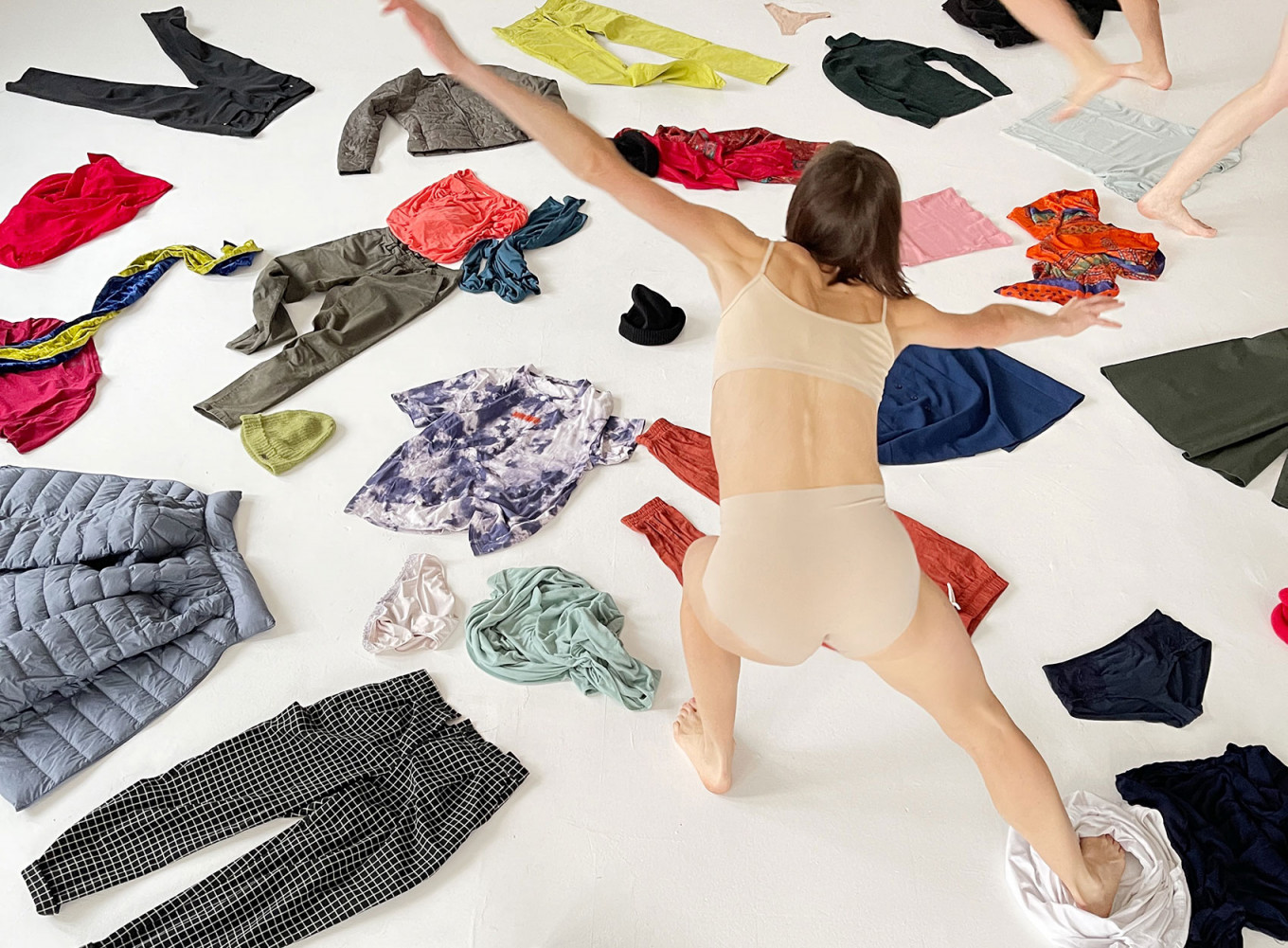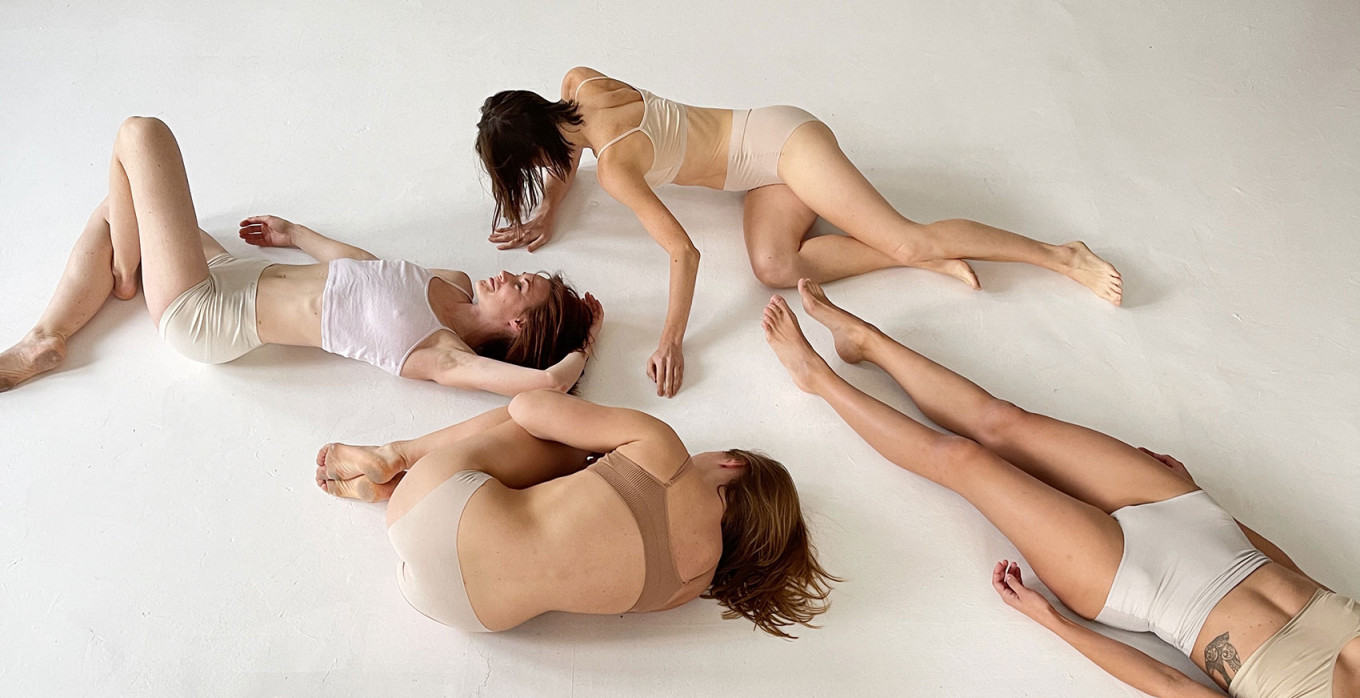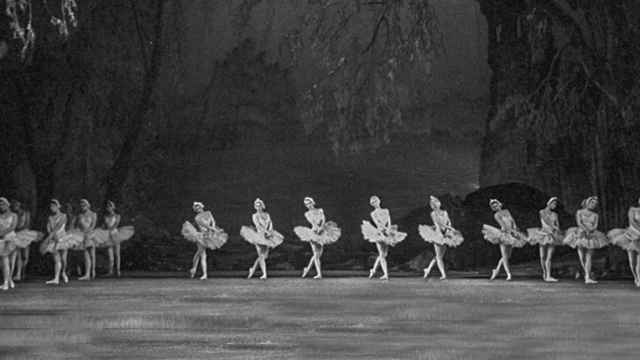Who made the clothes you’re wearing as you read this? Have you ever wondered? After seeing “Labor. May” by St. Petersburg director and choreographer Sergei Larionov, a play about the women in a garment shop, you may never thoughtlessly toss your clothes on the floor again.
Based on the real-life stories of tailors, dressmakers, cutters, costume and fashion designers and other people who work in the tailoring industry, Larionov’s production invites the audiences into the lives of the people who dress us. For authenticity the show is performed in a real sewing workshop — on weekends when the workshop is not in use.
“We live in post-industrial society…an era of consumerism and fast fashion, when the work of the people who make a product becomes invisible and there is less respect for human labor,” Larionov told The Moscow Times. “We are in no way against mass production. It makes perfect economic sense. Our play is just a gentle reminder to see the human being behind the brand. It is about staying kind and empathic in a world that is becoming more and more digital.”
Larionov recalls a Soviet-era tradition when in each box of candies there was a piece of paper with a name of the person who assembled it. “It was a basic thing, but we sensed the presence of a human being behind every product,” he said. “Today, this sense of presence has vanished.”

Meet the tailors
But it hasn’t vanished completely. “Labor. May” begins as the audience — seated in one row along a wall — sees half a dozen female performers, dressed in identical black garments, taking their places at their sewing machines. As they begin to speak, one by one, rising from their seats, we get to know their stories. Anton Yakhontov’s cerebral score, created especially for the production, adds color and depth to the drama.
When Tatiana was about to graduate from high school in the 1990s, she looked for a nice dress for her graduation party. There was nothing in the shops, and she decided to make one herself. The result was such a success and the process such a pleasure that she felt inspired to become a tailor.
For Yekaterina, who works as a head of the production department, it was about a precious family tradition: her great grandmother was a gold-thread seamstress at a workshop that catered to the Russian Imperial Court.
Viktoria works as a cutter. She has always regarded fashion as a form of art and wanted to be part of it. And for Irina, a tailor who makes coats, there was never really a question about her future profession: When she was a child, she created a whole wardrobe for her dolls.
None of the stories presented by the performers has been invented or edited. The tailors’ words form invisible threads that connect the spectators to the characters — and later to the real tailors, whose stories are played on large wall-sized screens while the women in the room express themselves through dance, choreographed by Larionov.
We learn about some of their fears, like missing a note to hem a dress before an important fashion show. Luckily, the dress was saved, but the tailor can never forget the disaster barely averted. But there are moments of triumph, too. By chance another seamstress sees a glossy magazine cover with fashion icon Renata Litvinova wearing a dress she made.

Connected by a thread
“A garment has to resonate with a personality. It is genuinely painful to see a well-dressed person uncomfortable in their clothes,” one of the tailors says onscreen. “The saddest thing in my job is when I see someone whose personality clashes with their style of clothing.”
Another tailor recalls making a costume for an actor who was due to play an archbishop in a play. “When I saw the play," the tailor said, "he was doing the very things on stage that I imagined him doing when I was working on the garment! Unbelievable!”
As human communication moves from the real to the digital, these simple stories told by unpretentious-looking women, who didn’t dress up or put on much make-up for the performance, are a revelation.
In the finale the performers take a long roll of black fabric and cut it in equal pieces, each of which becomes an identical seamless robe that they put on. But now they are no longer a chain of nameless workers. We know their stories, and that has made all the difference.
For more information about the performance and full schedule of future shows, visit here: https://vk.com/trud399may or www.trud-may.com

A Message from The Moscow Times:
Dear readers,
We are facing unprecedented challenges. Russia's Prosecutor General's Office has designated The Moscow Times as an "undesirable" organization, criminalizing our work and putting our staff at risk of prosecution. This follows our earlier unjust labeling as a "foreign agent."
These actions are direct attempts to silence independent journalism in Russia. The authorities claim our work "discredits the decisions of the Russian leadership." We see things differently: we strive to provide accurate, unbiased reporting on Russia.
We, the journalists of The Moscow Times, refuse to be silenced. But to continue our work, we need your help.
Your support, no matter how small, makes a world of difference. If you can, please support us monthly starting from just $2. It's quick to set up, and every contribution makes a significant impact.
By supporting The Moscow Times, you're defending open, independent journalism in the face of repression. Thank you for standing with us.
Remind me later.






